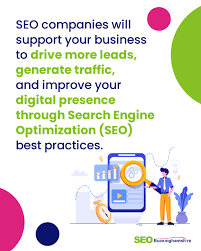Unlocking Success: The Power of SEO Keyword Analysis
The Importance of SEO Keyword Analysis
SEO keyword analysis is a crucial component of any successful search engine optimisation strategy. By understanding the keywords that your target audience is using to search for products or services online, you can optimise your website to attract relevant traffic and improve your search engine rankings.
What is SEO Keyword Analysis?
SEO keyword analysis involves researching and identifying the specific keywords and phrases that are most relevant to your business. This process helps you understand what terms people are using in search engines, allowing you to tailor your website content to match those queries.
The Benefits of SEO Keyword Analysis
- Improved Visibility: By targeting the right keywords, you can increase your website’s visibility in search engine results pages (SERPs).
- Targeted Traffic: Optimising for relevant keywords helps attract visitors who are more likely to convert into customers.
- Competitive Advantage: Understanding which keywords your competitors are targeting can help you identify opportunities to outperform them.
- Content Strategy: Keyword analysis informs your content strategy, helping you create valuable and engaging content that resonates with your audience.
- Measurable Results: By tracking keyword performance, you can measure the effectiveness of your SEO efforts and make data-driven decisions.
How to Conduct SEO Keyword Analysis
The process of conducting SEO keyword analysis typically involves:
- Keyword Research: Use tools like Google Keyword Planner, SEMrush, or Ahrefs to identify relevant keywords with high search volume and low competition.
- Competitor Analysis: Analyse the keywords that your competitors are ranking for and identify gaps in their strategies that you can capitalise on.
- Keyword Mapping: Organise your chosen keywords into groups based on relevance and intent to create a structured keyword map for your website.
- On-Page Optimisation: Incorporate selected keywords naturally into your website’s meta tags, headings, content, and URLs to improve its visibility for those terms.
- Monitoring and Iteration: Continuously monitor keyword performance and make adjustments to your strategy based on data insights and changes in search trends.
In conclusion, SEO keyword analysis is a fundamental aspect of SEO that can significantly impact the success of your online presence. By investing time and effort into understanding and optimising for the right keywords, you can enhance your website’s visibility, attract targeted traffic, and ultimately drive business growth.
8 Key Benefits of SEO Keyword Analysis for Amplifying Online Presence and Driving Targeted Traffic
- Enhances website visibility in search engine results pages (SERPs)
- Attracts targeted traffic interested in your products or services
- Improves search engine rankings for relevant keywords
- Helps identify and capitalise on competitor weaknesses
- Informs content strategy for more engaging and valuable content
- Provides measurable results to track SEO effectiveness
- Guides on-page optimisation efforts for better keyword targeting
- Allows for continuous monitoring and adjustment based on performance
Three Key Drawbacks of SEO Keyword Analysis: Over-Optimisation, Volatility, and Competition
Enhances website visibility in search engine results pages (SERPs)
SEO keyword analysis plays a pivotal role in enhancing website visibility in search engine results pages (SERPs). By strategically targeting relevant keywords that align with user search queries, businesses can improve their chances of appearing higher in SERPs. This increased visibility not only drives more organic traffic to the website but also boosts brand awareness and credibility among online users searching for products or services related to those keywords. Ultimately, by optimising for the right keywords through thorough analysis, businesses can position themselves more prominently in search results and attract valuable traffic that is more likely to convert into customers.
Attracts targeted traffic interested in your products or services
One significant benefit of SEO keyword analysis is its ability to attract targeted traffic that is specifically interested in your products or services. By identifying and optimising for relevant keywords, you can ensure that your website appears in search results when potential customers are actively seeking information related to what you offer. This targeted traffic not only increases the likelihood of conversions but also enhances the overall quality of visitors to your site, leading to a more engaged and interested audience.
Improves search engine rankings for relevant keywords
SEO keyword analysis plays a pivotal role in enhancing search engine rankings for relevant keywords. By meticulously researching and targeting the specific terms that align with users’ search queries, businesses can significantly improve their visibility in search engine results pages (SERPs). This strategic approach ensures that websites are optimised to attract organic traffic looking for products or services related to those keywords, ultimately boosting their online presence and driving valuable traffic to their site.
Helps identify and capitalise on competitor weaknesses
SEO keyword analysis plays a pivotal role in helping businesses identify and capitalise on competitor weaknesses. By conducting thorough research into the keywords that competitors are targeting and analysing their performance, companies can uncover gaps in their strategies and leverage this information to gain a competitive advantage. This pro of SEO keyword analysis enables businesses to fine-tune their own keyword targeting efforts, fill in the gaps left by competitors, and ultimately strengthen their position in search engine rankings.
Informs content strategy for more engaging and valuable content
SEO keyword analysis plays a pivotal role in informing content strategy by identifying the specific keywords and phrases that resonate with the target audience. By understanding the search terms used by potential customers, businesses can create more engaging and valuable content that addresses their needs and interests. This strategic approach not only helps in improving search engine rankings but also enhances user experience by delivering relevant information, ultimately leading to higher engagement and conversions on the website.
Provides measurable results to track SEO effectiveness
One significant advantage of SEO keyword analysis is its ability to provide measurable results that allow businesses to track the effectiveness of their SEO efforts. By monitoring the performance of selected keywords, businesses can gain valuable insights into how well their website is ranking in search engine results pages (SERPs) and how effectively they are attracting organic traffic. This data-driven approach enables businesses to make informed decisions and adjustments to their SEO strategies, ensuring continuous improvement and maximising the impact of their online presence.
Guides on-page optimisation efforts for better keyword targeting
One significant benefit of SEO keyword analysis is that it guides on-page optimisation efforts for improved keyword targeting. By conducting thorough keyword research and identifying the most relevant terms for your business, you can strategically incorporate these keywords into your website’s meta tags, headings, content, and URLs. This targeted approach not only enhances the visibility of your website for specific search queries but also helps search engines better understand the relevance of your content to user intent. As a result, by aligning your on-page optimisation with the insights gained from keyword analysis, you can effectively boost your website’s search engine rankings and attract more qualified traffic to your site.
Allows for continuous monitoring and adjustment based on performance
An essential benefit of SEO keyword analysis is that it enables continuous monitoring and adjustment based on performance metrics. By regularly tracking the performance of selected keywords, website owners can gain valuable insights into what is working well and what needs improvement. This data-driven approach allows for agile adjustments to the SEO strategy, ensuring that efforts are focused on keywords that yield the best results. By staying responsive to performance metrics, businesses can adapt their keyword targeting to align with evolving search trends and user behaviour, ultimately maximising the effectiveness of their SEO efforts.
Keyword Over-Optimisation
An important con of SEO keyword analysis is the risk of keyword over-optimisation. When website content is excessively focused on keywords, it can result in unnatural or spammy text that not only detracts from the user experience but also poses a threat to search engine rankings. Overloading content with keywords in an attempt to boost SEO performance can backfire, as search engines now prioritise quality and relevance over keyword density. Striking a balance between incorporating keywords strategically and maintaining the integrity and readability of the content is essential to avoid falling into the trap of keyword over-optimisation.
Keyword Volatility
One significant drawback of SEO keyword analysis is the volatility of keywords. Search trends and algorithms are in a constant state of flux, posing a challenge in sustaining keyword relevance over time. What may be a popular search term today could become less effective tomorrow as user behaviour shifts and search engines update their algorithms. This dynamic nature of keywords requires continuous monitoring and adaptation to ensure that your SEO strategy remains effective and aligned with the evolving landscape of online search.
Keyword Competition
One significant drawback of SEO keyword analysis is the challenge posed by keyword competition. In highly competitive markets, targeting popular keywords that are already saturated with established competitors can be a daunting task. Ranking for these competitive keywords often demands significant resources, time, and effort to surpass the competition and achieve visibility in search engine results. This intense competition can make it challenging for businesses, particularly those with limited budgets or resources, to effectively rank for high-demand keywords and compete against well-established players in the market.



